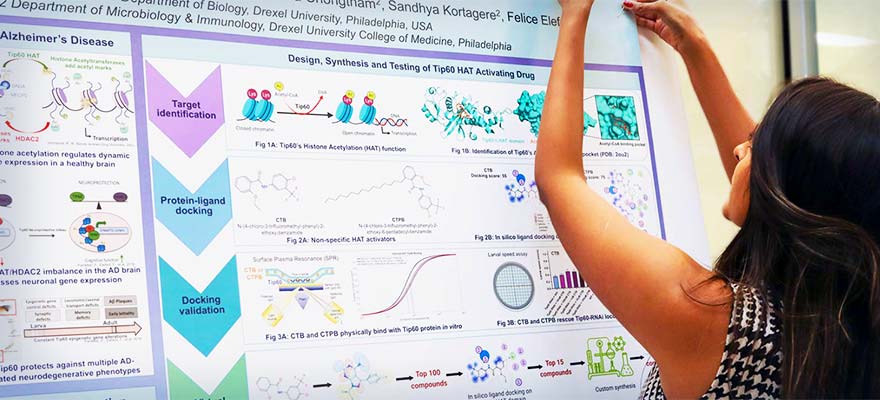Biological Sciences students across all levels of scholarship learn by doing. Students gain career-guiding experience by working alongside supportive faculty mentors at the forefront of scientific discovery in their fields. They join a collaborative community of faculty, graduate, and undergraduate scientists who work across disciplines to develop skills, share knowledge, and explore complex questions over a dynamic range of research areas.
The Department of Biology is home to one of the largest undergraduate student bodies at Drexel University — which speaks to the expertise of our faculty, the quality of our research agenda and excellent facilities, as well as the academic rigor of our curriculum. We offer a full range of undergraduate academic programs and concentrations in the biological sciences to suit the diverse interests and career goals of our students. Our dynamic and highly collaborative graduate degree programs both support and reinforced by the participation, creativity, and energy of our advanced students. Graduate scholars can take classes in a broad number of disciplines, and perform rotations with up to three faculty members in the department. Graduate students have the opportunity to be teaching assistants at the undergraduate level and often receive support through fellowships or as research assistants during their graduate program.
Quicklinks
Major
Drexel's Department of Biology is more than just courses; biology majors learn by doing. Undergraduates have the opportunity to experience real-life career options through Drexel’s cooperative education program. Undergraduate students also have access to hands-on experience through numerous research opportunities. In addition to the core requirements, students select one of six concentrations including:
- Cell/Molecular/Genetics/Biochemistry
- Organismal Biology/Physiology
- Ecology/Evolution/Genomics
- Pathobiology
- General Biology
- Cell and Gene Therapy

Accelerated Programs
Earn your advanced degree sooner — Drexel University's accelerated degree programs allow academically qualified undergraduate students to earn a bachelor's degree and a master's degree concurrently, allowing them to graduate sooner than they would in traditional advanced degree programs.
Minors
Biological Sciences majors can enhance career-readiness through minor programs designed to provide them with deeper understanding and the opportunity to develop more focused skills.

Graduate Programs
The Drexel University Department of Biology offers a Master of Science MS degree and Doctoral PhD degree in Biological Sciences. Our graduate curriculum provides offers graduate students a solid foundation in professional education, encompassing factual and theoretical concepts as well as basic research skills and training.